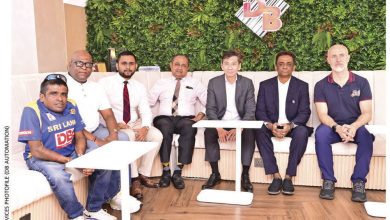SARAII VILLAGE

Q: Could you outline Saraii Village’s journey from its inception?
A: The initial idea for Saraii Village was born out of a need to support rural farming communities – to enable them to have dignity in their vocation and improve their economic status.
My work with Saaraketha Organics – which is a triple bottom line aligned and socially sustainable for-profit business – opened my eyes to the needs of rural people in Sri Lanka and their search for nonagricultural employment in particular, the lack of which had forced them to move to cities far away from their communities.
I felt compelled to find an ethical and sustainable way to offer employment to rural populations.
Since I had no experience in terms of setting up a business and wanted to understand how new age social businesses work, I secured a Fulbright scholarship, and gained an MBA in Global Social and Sustainable Enterprise from Colorado State University.
The Saraii project idea that I pitched at the summer practicum was selected, enabling me to set up the initial four room resort in Weerawila.
Q: What were the toughest challenges faced by the resort? And how did you overcome them?
A: I launched Saraii Village with immense passion and an unwavering desire to make a difference to the lives of rural Sri Lankans.
But the reality was more challenging. From the cofounders quitting when things became difficult, to securing adequate funding to start the project and understanding the local business landscape, it was a real challenge. Nevertheless, I was determined to forge ahead.
I was also quite determined to do it myself and felt that people would understand my concept better if I could prove that it made business sense through a small pilot.
To this end, I saved funds from my Fulbright scholarship as well as a graduate assistantship, and set up the accommodation units.
We then hit a snag when it came to classifying our hotel as an ‘eco resort’ – and it took us a few years to register Saraii Village as a tourist establishment.
Furthermore, I had to wade through the stigma of being a woman entrepreneur in the tourism industry. It’s shocking that even in this day and age, it continues to come as a surprise to a certain segment of the population that I run my own business and have a larger dream of expansion instead of treating it as a lifestyle business.
Q: So what are your thoughts regarding women in tourism?
A: Globally, over 10 percent of economic activity is fuelled by tourism. As it is one of the largest employment generators in the world, the tourism industry is able to reach some of the most rural and underserved populations across the globe.
In Sri Lanka, we have a female population of over 60 percent, a mere 30 percent of whom are economically independent and actively participating in the economy. Moreover, only a very small fragment is involved in the tourism industry.
Although tourism is an ideal industry in which women can play multiple roles, the inherent cultural stigma holds them back. It’s important that we all – government, the private sector and most importantly, society in general – rally around the common goal of changing this negative perception. This will empower and offer more opportunities for women.
The tourism trade can learn a lesson from Sri Lanka’s apparel industry, which also faced its share of issues 20 years ago.
It’s amazing to see how it transformed its image from sweatshops that sold cheap labour into ethical one stop shops promoting ‘Garments without Guilt.’
This was achieved by empowered women. Apparel is now the third largest source of foreign exchange for the country.
Q: Are there any major challenges faced by your industry?
A: Although tourism was witnessing a boom at the beginning of 2019, we encountered stiff competition from emerging travel hotspots such as Myanmar, Vietnam and Cambodia. These destinations are pristine yet low-cost.
I believe that Sri Lanka has a lot more to offer but isn’t as inexpensive.
Nonetheless, the efforts of Sri Lanka Tourism resulted in considerable mileage among many influencers and the country ended up being listed as the best destination in the world.
Our tourism industry almost came to a standstill given the unfortunate incidents in April. However, we are a resilient nation, and with more promotions by organisations such as the Sri Lanka Tourism Promotion Bureau, we see a pickup in guest arrivals and are hopeful that tourism will thrive once again.
Q: So what are Saraii Village’s plans for the future?
A: For Saraii Village, the next step is to do with replication. Saraii offers a different type of tourism – one that is experiential. It’s all about immersing oneself in the essence of the surrounding landscape and there’s huge demand for ‘real tourism’ such as this.
We’re currently on the lookout for partners who share the same philosophy of supporting socially sustainable businesses to join us on this journey.

Charitha Abeyratne Hettiarachchi
Founder and CEO
Telephone 0768 216363
Email reservations@saraiivillage.com
Website www.saraiivillage.com





